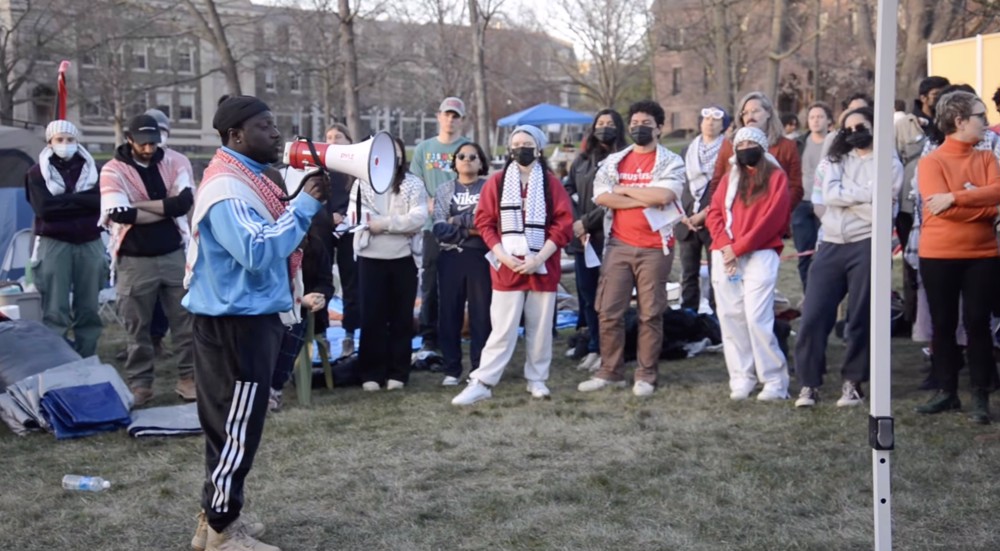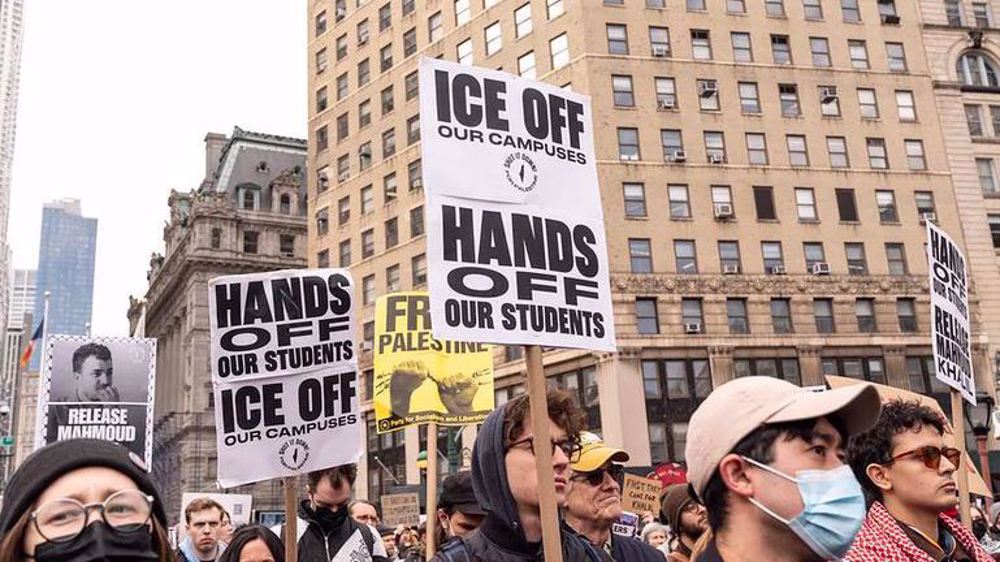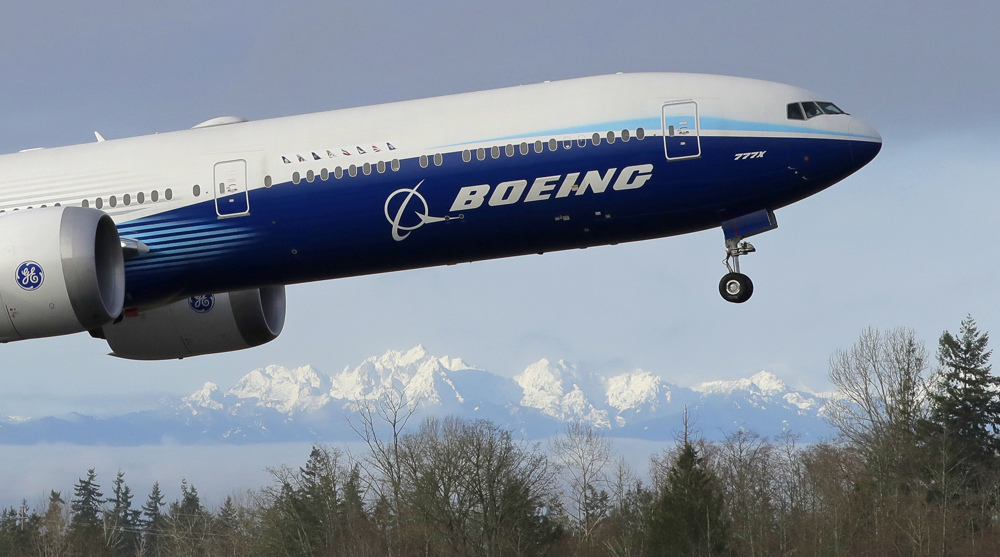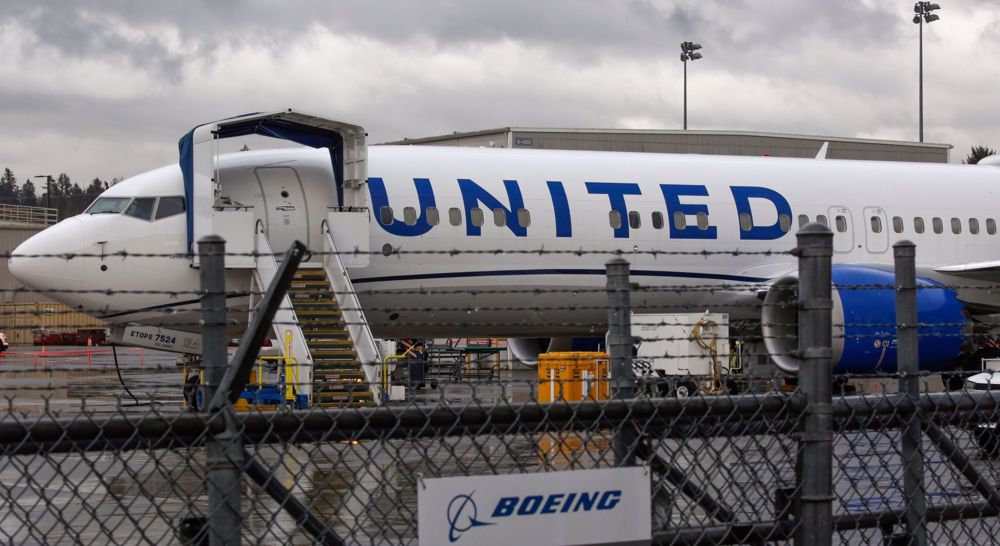US Boeing records largest loss in its history over pandemic, 777X delay
US aerospace giant Boeing has recorded its largest loss ever in its history over the COVID-19 crisis and delays to its new 777X plane.
The company says it lost close to $12 billion in 2020 – largest in the aerospace giant's over 100-year history – as it continued to reel from the 737 MAX saga and a pandemic-driven fall for demand for new airplanes.
"The deep impact of the pandemic on commercial air travel, coupled with the 737 MAX grounding, challenged our results," said Chief Executive Dave Calhoun.
The past year was one of "profound societal and global disruption which significantly constrained our industry."
Boeing took a hefty $6.5 billion charge on its all-new 777X jetliner, a longer variant of the widebody 777, as it posted a record annual loss on Wednesday.
The accounting for the prolongation pushed the US company’s fourth-quarter loss to $8.4 billion, plunging its tally for all of 2020 to $11.9 billion in the red.
The company says it expects first deliveries of the wide-body 777X in late 2023, delaying the jet's rollout for the third time.
Boeing says the 777X delay has been caused by both the need to incorporate lessons from the 737 MAX certification after its safety crisis as well as uncertainty about airline demand due to the pandemic.
Other challenges also hit the fourth quarter including payments to the US Justice Department to settle criminal charges over the 737 MAX crashes, the altered production schedule for the same aircraft and production issues on the KC-46 midair refueling tanker for the Air Force.
Each of these items amounted to a hit of between $275 million and $744 million.
The company announced job cuts of some 30,000 employees over two years, and completed a $25 billion bond offering to provide liquidity to ride out the downturn, sparked by the COVID-19 pandemic.
Boeing said that it will take about three years for activity to return to pre-pandemic levels, cautioning that profit margins will be under pressure until demand return.
Disappointment over COVID vaccine rollout
Boeing chief executive expressed disappointment at the glitchy rollout of the coronavirus vaccine, saying he now expects a significant uptick in travel in the second half of 2021 rather than in early summer.
"I think all of us were hoping that vaccine distribution might go a little more smoothly," Calhoun said.
He also said the COVID-19 case rates continue to be high and travel restrictions remain in place, putting significant pressure on passenger traffic.
Calhoun said he doesn't expect demand to bounce back any time soon, noting that, "We expect it will take around three years for travel to return to 2019 levels, and a few years beyond that to return to our long term growth trend."
Air travel demand plummeted amid global travel restrictions and fears of spreading the virus, and that the number of people flying is down nearly 60% from a year ago.
Analysts say Boeing's results were "disappointing" in several ways and that the company continued to burn through cash while awaiting the travel recovery.
Shares of Boeing tumbled 4.0 percent to $194.03 at the close of US trading.

Pro-Palestinian student leaves US amid deportation threats

US secretly revokes university students’ immigration statuses: Report

Zionist groups use facial recognition tech to identify pro-Palestine activists: Report
US orders social media screening for student visa applicants to bar those critical of Israel
VIDEO | Iran marks anniversary of Israeli attack on embassy in Damascus
Hamas slams Ben-Gvir’s storming of al-Aqsa Mosque as ‘dangerous escalation’
Moving against global tide, Israel eliminates all tariffs on US goods
VIDEO | Press TV's news headlines
Key well launched at Phase 11 of Iran’s South Pars gas field
Iran says US threats of military action will ‘complicate situation’ for talks
ICC censures Hungary for ignoring Netanyahu arrest warrant









 This makes it easy to access the Press TV website
This makes it easy to access the Press TV website